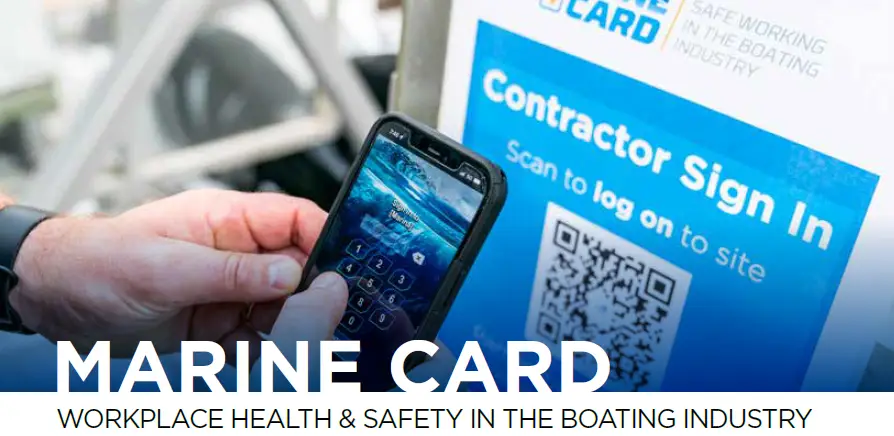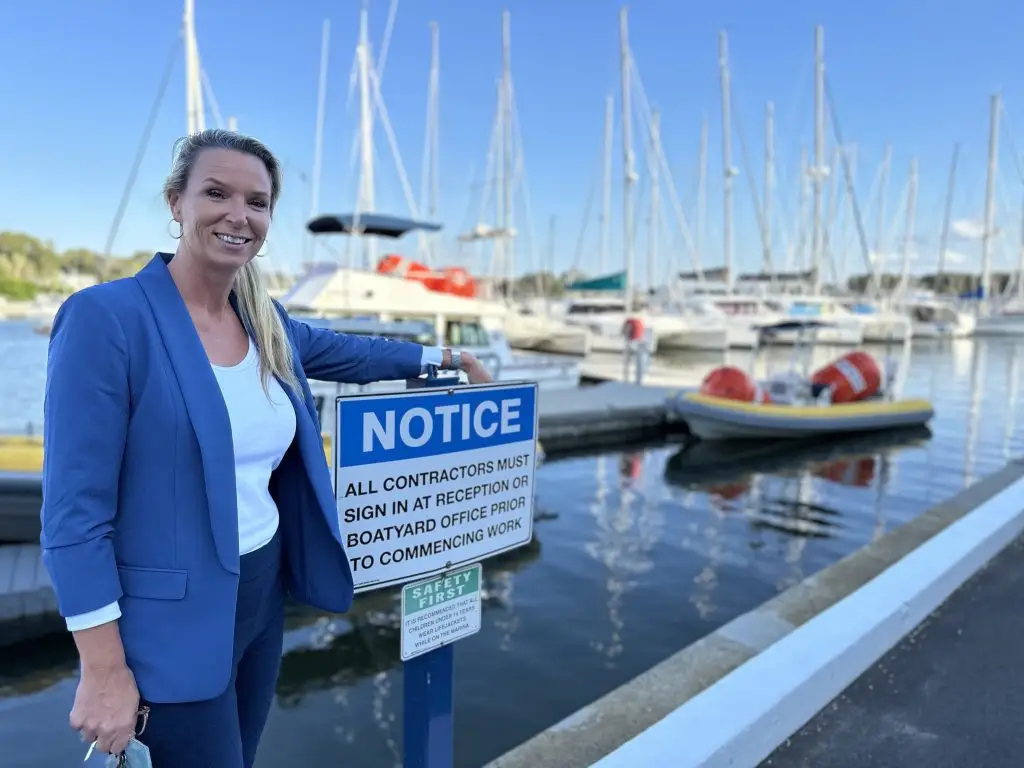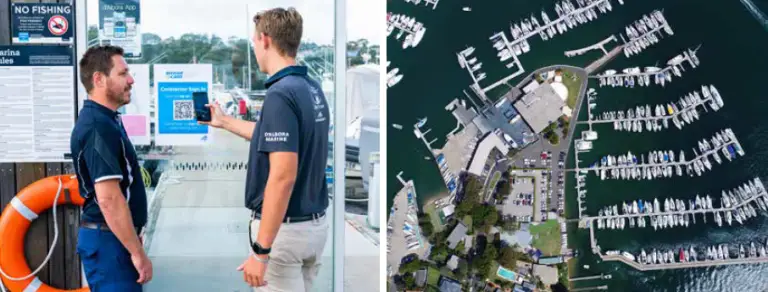
BIA designed Marine Card to assist with education of marine industry contractors on WHS practices and support safe marine business operations. The Marine Card program and Access Management System (AMS) enables marine businesses to build better systems of compliance, increase safety awareness and streamline the registration and sign-in process for visitors entering marine sites to undertake work activities. BIA caught up with Kylie Brown, Marine Services & Operations Manager, Royal Prince Alfred Yacht Club, to discuss how the system assists in the Club’s day-to-day operations and long term growth.
Kylie, you were part of the initial working group that conceived Marine Card and AMS and helped develop the bespoke program for the marina industry. Why and how did this come about?
Prior to the Marine Card and AMS, the Club managed contractors
utilising an Excel database and had complex filing systems
to store inductions, sign in records and insurances. When
approached by the BIA several years ago with a concept for a
contractor management system and an industry based WHS
training program we jumped at the opportunity to get involved.
Can you tell us about your experience using the Marine Card and Access Management System?
The AMS was easily installed and not complex to use by staff
or contractors. Our teams in various departments can log
in, validate access and check compliance. Plus, in the event
of an emergency evacuation, we can – in one click – send an
emergency message to all contractors on site.
How has the Marine Card helped streamline your marina operations?
The administration time was reduced significantly, no more time-consuming data entry processes involved with managing it in-house. In less than 30 seconds we’re able to validate a contractor’s Marine Card status, insurance/s, sign them in and print a wrist band.
What features of the Marine Card do you find most beneficial for your business?
The Marine Card system allows us to access comprehensive
documentation of contractor credentials, insurance
information, and records in one place, simplifying recordkeeping
and facilitating compliance with our own regulatory
requirements to ensure a safe workplace.
How does the Marine Card system contribute to managing your workplace health and safety plan?
The Marine Card training ensures contractors, particularly those new to the industry, are equipped with industry-based WHS training to enable them to work safely at our Club. This training and the ability to screen contractors coming on site is incredibly important.
The Marine Card induction is only one part of this, how does the Access Management System enhance the control at your marina?
Historically, administration of current insurances and workers compensation was time-consuming and contractors (and their staff ) would arrive and we didn’t have valid insurances on file. The AMS is used at so many sites, that contractors are being checked everywhere, which is driving them to maintain and keep their insurances up to date. It’s easy for the contractors, single point of upload and all the sites have access.

Can you share any specific instances where the AMS has improved efficiency or saved time for your team?
There are multiple ways the system has improved efficiency.
The Club welcomes over 150 external contractors per year,
that’s a minimum of 150 public liability policies to administer
and at least 50 per cent of those contractors also have workers
compensation. Fast forward, there’s no Excel spreadsheet
managing which contractors are linked to which policy, it’s all
available online. We can see which staff are linked to which
policy and the system flags, and directs contractors to speak to
us where insurance has expired, isn’t valid or is missing.
How easy was it to implement the AMS system into your existing operations?
In short very easy, we had the wristband printer set up and
basic training for staff. It’s a user-friendly system for venues
to operate. To ensure contractors were ready ahead of
implementation, we wrote to those we were aware frequently
visited the Club, explained we were implementing changes to
our Contractor Policy, and in recent years the training doesn’t
require staff to attend on-site training as it’s all online. These
days we occasionally have contractors or their staff who require
assistance signing in but for the most part when contractors
need assistance with logging in, uploading documents or
linking staff, they contact the BIA directly.
Have you encountered any challenges or limitations with the Marine Card system, and how were they addressed?
We have encountered challenges with contractors who
don’t understand the necessity of the Marine Card training or
why they should provide their insurances. However, through
ongoing communication and by being consistent, we have
conveyed the benefits of industry-based training and the
importance of compliance with our safety protocols. As a
result, we’ve seen an increasing understanding and acceptance
among almost all Club Members and their appointed
contractors regarding the value that the Marine Card training
provides and the risk mitigation it provides to our Club.

In what ways does the Marine Card system support your business growth and expansion plans?
The BIA team have welcomed feedback to improve and build the program. This has been important over the years as compliance requirements have changed. The BIA team have also provided terrific support to the contractors too.
Overall, how would you rate the effectiveness and impact of the Marine Card and Access Management System on your business?
We rate the Marine Card training and AMS system highly. We’ve fostered a culture of safety and environmental awareness at our Club, and the easy-to-use AMS has streamlined our processes, saving us valuable resources. People coming on-site know what to expect and know that they will be compliant with our WHS processes; it makes life easier for everyone!
What role do you see the Marine Card program playing and how important is it moving forward in the everchanging world of compliance?
Compliance requirements for marina and boatyard operators can be complex. The BIA has demonstrated their commitment to continuing to improve the features of the AMS and maintaining the Marine Card training relevant to regulatory requirements. By providing a standardised framework for contractor management and WHS training, we as an industry will continue to foster a consistent culture of safety and accountability across the industry.
Risk mitigation is paramount for all marina and boatyards, and the AMS and Marine Card program helps to mitigate risk by ensuring that contractors are adequately trained, compliant with safety protocols and site policies.

